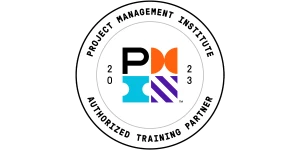What does it take to be successful in your Lean Journey?
Lean and Lean Six Sigma are methodologies that companies apply to ALL aspects of the business (NOT just manufacturing and supply chain processes). Tangible improvements and benefits are being realized in transactional, service, and other totally divergent business environments. The fundamental basis for the success of Lean and Lean Six Sigma methods in all facets of an organization is the ability to identify waste, reduce it, and aggressively go for the elimination of non-value-added activities and improve response to that business’ customer base, whether internal or external.
Lean Fundamentals is the in-person training level that helps develop critical skills required for participating in successful Lean projects.
A Project Certification is required to become a Certified Lean Agent and this project is a real process improvement that candidates choose to implement for their current employer.
Lean methods have been proven since the beginning of the industrial revolution. Business leaders have been focused on driving performance and response to meet customer expectations while reducing costs. Examples include Henry Ford’s genesis of the automobile industry, and the military’s need to take advantage of “Detroit’s” abilities in World War II where a B24 Liberator was rolling of the assembly line every 56 minutes. Lean methods were quantified and fined tuned during the 1950s and ’60s by Toyota, and other forward-thinking out of the box companies to the current available Lean methods available to businesses. These include:
- 5S Programs
- Theory of Constraints
- The 7 Wastes
- Toyota Production Systems, (TPS)
- Demand Flow
- Just in Time
- Value Stream Mapping
- Transactional Mapping
- TQC
- Re-engineering
In all cases the results expected remain the same:
- Focus on Customer, their expectations and what they perceive as value
- A passion for Continuous Improvement in the elimination of waste
- Identification of where an organization adds value and the identification of non-value activities to enable the successful implementation of the future state vision
- Creating the ability for products or activities, (transactions) to flow through a process map in the shortest amount of time possible
- Establishing disciplines to link Customer Demand directly to processes, transactions, resources, or material.
Lean Master is the final step in our Lean Training Program.
What has changed recently, is understanding which of these methods or combinations of methods will have the greatest impact on your business. 6Sigma.us’s Lean education and service programs have been developed on a solid Six Sigma DMAIC foundation.
Companies working to implement Lean will normally grab onto one or two of the available Lean methodologies and will see some short term benefits, as in an example of, implementing a 5S program or getting a team together to put together a Value Stream Map of the particular process relationships or transaction flow. By just raising the visibility and focusing on an area companies will immediately realize the low hanging and on the ground fruit waiting to be harvested.
6Sigma.us’ Lean methods are designed to yield benefits quickly by supporting the optimum methodology matched to a company’s business objectives and needs while establishing a sustainable process for ongoing improvement. Our methods are quantitative and bring to light further areas of opportunity where Six Sigma projects can be taken advantage of.
How do we define the best Lean methods to apply? What are the steps in driving a Lean transformation? How long will it take? What is the level of involvement of team members? Are we getting the results defined in our objectives? How do we continue our progress and integrate Six Sigma into our efforts?
6Sigma.us has a proven education and services methodology that brings the tools and processes of Six Sigma to Lean education and Lean implementation programs to drive results and sustainability more quickly and with long term sustainability using quantifiable methods.
6Sigma.us has developed a seamless process for supporting both Lean and Lean Sigma implementations across divergent business and governmental processes. We invite you to attend one of our informative Lean or Lean Sigma workshops, participate in our Lean Masters program, or gain an in-depth understanding of the potential for improvement from our Lean assessment program or participating in our Lean 6 Sigma continuing education series.
Understanding and comprehension are important first steps towards guaranteeing success in implementing Lean and Lean Six Sigma programs. 6Sigma.us’ Lean curriculum and continuing Lean Six Sigma Education programs offer instruction geared to meeting the specific needs of the participants to build the foundation for driving successful process improvement initiatives. Education programs are available online, on-site, and public.
For more in-depth information on Lean Six Sigma Training see the Lean Fundamentals Course Objectives and Course Agenda for details.
More Information
Save
Save






